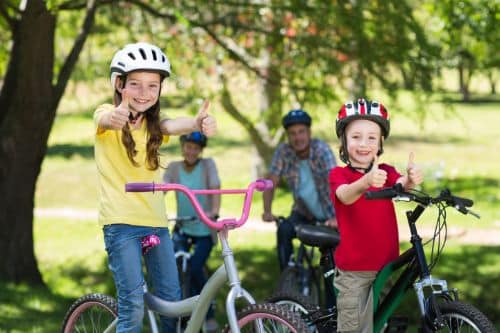Engaging in Recreational Activities

Participating in activities can positively impact individuals, with autism by aiding in their growth, social interaction and happiness. Engaging in hobbies and interests can enhance skills and overall well being for adults, on the autism spectrum. However traditional recreational programs may present challenges underscoring the significance of seeking out options tailored to their needs.
Benefits of Recreational Programs
Recreational programs tailored specifically for individuals, with autism provide benefits that contribute to their development and well being. Some notable advantages include:
- Engaging in activities gives individuals with autism opportunities to connect with others fostering interaction and refining skills. These activities create an environment where participants can build relationships improve communication abilities and learn from one another.
Participating in activities can be advantageous for individuals with autism by helping them enhance skills such as abilities, cognitive processes, problem solving, teamwork and decision making. Involvement in programs allows individuals to explore their interests and talents while expanding their skill set.
Involvement in hobbies can positively impact the health of individuals with autism by boosting self esteem reducing stress levels and fostering a sense of accomplishment. Engaging in activities not allows for self expression. Also promotes the development of valuable coping mechanisms.
- Participation in these pursuits has enhanced the quality of life for adults diagnosed with autism. Such activities provide opportunities for growth, social connections well as feelings of achievement and independence. Through engagement in programs individuals, with autism can experience increased fulfillment and happiness in their endeavors.
Challenges of Traditional Programs
Engaging in activities offers benefits. Individuals, with autism may face unique challenges when participating in programs. Some difficulties they may encounter include:
Sensory Sensitivities: People with autism often struggle with sensitivities to stimuli like sounds, bright lights or crowded spaces. This can make it hard for them to fully engage in activities that don’t consider these sensitivities leading to discomfort or distress.
- Communication Challenges: Those with autism may have difficulty communicating verbally or nonverbally. Programs that heavily rely on directions or social cues might present obstacles for individuals who require alternative communication methods or extra support.
- Social Interaction Barriers: Building connections can be difficult for individuals with autism due to challenges in communication and interaction. Programs that lack an understanding environment could create barriers to engagement and integration unintentionally.
To address these issues and ensure that individuals with autism can participate fully in activities it’s important to explore programs tailored specifically for them.
These programs are designed to meet the needs of people with autism by providing an environment for their development.
The following sections will discuss types of programs catering to individuals with autism, including those focusing on experiences, social skill development, and participation in adaptive sports and fitness activities.
Autism-Friendly Recreational Programs
Programs designed for people with autism are custom-made to suit their requirements, providing a welcoming environment for their involvement. These initiatives aim to tackle the sensory, communication, and social challenges that individuals with autism may face.
Design and Objectives
Autism programs are designed to meet the needs and preferences of individuals with autism. These programs often include strategies to support regulation, minimize inputs, and ensure communication and organization.
Trained professionals who understand autism typically oversee these programs, working alongside staff members who are knowledgeable about the condition.
Furthermore, adherence to BACB supervision requirements ensures that these programs are effectively monitored and tailored to support the participants’ needs.
The primary objectives of these programs usually revolve around enhancing skills, physical well-being, self-esteem, and overall health.
These initiatives aim to provide opportunities for individuals with autism to participate in activities with their peers by promoting inclusivity.
This not only fosters growth but also nurtures a sense of community and belonging, which positively influences the emotional well-being of the participants.
Benefits for Individuals with Autistic Adults
Tailored programs designed for individuals with autism can bring a variety of benefits. These programs do not provide a space for activities. Also, help in developing various skills. Some key advantages include:
Building Better Social Connections: Engaging in group activities and forming relationships with friends and mentors can help strengthen bonds. For individuals with autism, participating in settings can significantly enhance skills like sharing, teamwork, and communication, all crucial for growth.
Boosted Physical Fitness: Many autism-specific programs incorporate physical activities such as sports, swimming, or dancing, which can enhance coordination, motor skills, and overall physical well-being.
Heightened Self-Esteem: Setting and achieving goals while receiving feedback can help individuals with autism build a stronger sense of self-worth and achievement.
Enhanced Overall Quality of Life: Involvement in leisure activities can enhance the quality of life for individuals with autism by providing opportunities for enjoyment, reducing stress levels, and promoting mental well-being.
Tailored programs designed for individuals with autism can bring various benefits. These programs do not provide a space for activities. Also, help in developing different skills. Some key advantages include;
- Improving Social Connections; Engaging in group activities and forming relationships with friends and mentors can help strengthen bonds.
- Participating in settings can significantly enhance skills like sharing, teamwork, and communication, which are crucial for growth for individuals with autism.
- Enhanced Physical Fitness: Many autism-specific programs incorporate physical activities such as sports, swimming, or dancing, which can enhance coordination, motor skills, and overall physical well-being.
- Increased Self-Esteem: Setting and achieving goals while receiving feedback can help individuals with autism build a stronger sense of self-worth and achievement.
- Improved Quality of Life: Involvement in leisure activities can enhance the quality of life for individuals with autism by providing opportunities for enjoyment, reducing stress levels, and promoting mental well-being.
- It’s worth noting that recreational programs tailored to accommodate individuals with autism not benefit those directly involved but also create opportunities for their families and friends to participate.
Autism-friendly recreational programs contribute positively to the lives of individuals with autism by creating an environment.
They focus on promoting inclusivity, supporting growth, and catering to the needs and interests of those on the autism spectrum, enabling them to lead fulfilling and enjoyable lives.
Types of Autism-Friendly Programs
Various programs have been developed to cater to the needs and preferences of individuals with autism, providing them with an inclusive environment to engage in activities. These programs are categorized into experiences, social skills enhancement, and sports and physical fitness initiatives for people with autism.
Sensory-Focused Programs
Programs geared towards addressing the needs of autistic individuals aim to provide a structured setting for them to engage in activities that foster inclusion and exploration. By incorporating play, art therapy, and music therapy, these initiatives help individuals with autism improve their processing, emotional regulation, and coping abilities. Such interventions can impact an individual’s health and sensory processing capabilities.
Social Skills Development Programs
The program focuses on enhancing the interaction and communication skills of autistic individuals. It includes activities and interventions that promote socialization, teamwork, and effective communication.
These activities may involve group discussions, role-playing exercises for problem-solving, and interactive games. By creating an environment for practicing and improving skills, these programs help individuals with autism boost their confidence and improve their interactions with others.
Adaptive Sports and Fitness Programs

These specialized programs are created to cater to the needs and capabilities of individuals with autism, offering modified versions of sports and fitness activities. They aim to enable individuals with autism to engage in these activities and derive the benefits of exercise.
In addition to promoting well-being, these programs also emphasize developing motor skills, fostering connections, and fostering a sense of belonging within a team or group environment.
Participating in these tailored programs specifically designed for individuals with autism can bring about advantages. These initiatives have the potential to improve skills, enhance communication abilities, manage behavior effectively, promote health, boost self-confidence, and to enhance the quality of life.
Engaging in activities allows individuals with autism to pursue their interests, acquire skills, and experience a sense of belonging, which aids in stress management, personal growth, and social connections.
These programs, crafted for individuals with autism, are structured to ensure participation in activities while also providing social benefits through personalized support and inclusive environments.
Outdoor Activities for Autistic Adults
Engaging in activities brings advantages to adults, with autism spectrum disorder, such as improved health, heightened joy and deeper social bonds.
Being, in settings and connecting with nature can have an effect and bring a lot of fulfillments to their lives underscoring the value of these experiences for their overall well-being.
Benefits of Outdoor Exposure
Spending time in nature has been proven to impact physical and mental well-being. Research show that being in spaces can lower blood pressure, heart rate and cortisol levels reducing stress. It is also linked to health benefits like decreased anxiety and better mood.
Engaging in outdoor activities offer unique advantages provides advantages for individuals with autism. Being active outside can improve balance, coordination and spatial awareness. Areas that can be challenging for those, with autism. Taking part in these activities can also increase feelings of achievement and self confidence as individuals discover their abilities.
Therapeutic Value of Greenspace
Being outside, with all its nature and wide open spaces can be really helpful for people, with autism. The sights, sounds and smells of the outdoors can have an effect making them feel more relaxed and less anxious. It can also help them function better in their daily lives.
Spending time, in environments can promote the development of a range of skills and abilities. Engaging in activities can help improve coordination enhance abilities and have a positive impact, on overall health. The sense of independence and confidence gained from adventures can boost self esteem and self assurance in individuals with autism. Nature presents chances for growth and learning.
Taking part in events and activities allows autistic adults to form bonds improve communication skills and interact with others in an environment. Spending time outdoors promotes a feeling of belonging and inclusiveness facilitating connections with others and meaningful engagements.
By exploring interests autistic adults can experience increased activity better health outcomes and more social interactions. Outdoor pursuits provide the soothing influence of nature along with opportunities for development and advancement which are especially beneficial for individuals, with autism.
Engaging Outdoor Activities
Engaging in activities can bring benefits to adults, with autism including exploration, social interaction and physical exercise. Watching the stars and enjoying the outdoors are hobbies among adults along, with getting involved in cycling groups.
Stargazing and Nature Observation
Stargazing is often underestimated as a hobby that offers benefits. It’s a low cost activity that can be incredibly calming and inspiring. To fully enjoy stargazing its recommended to find a location, outdoor activities, from city lights and minimize sources. This allows for a view of the night sky enabling you to marvel at objects in their natural splendor. Engaging in stargazing can nurture an appreciation for nature and spark curiosity in exploring the universe. For information on stargazing feel free to explore our feature on this pursuit.
Observing nature is another enriching pastime that allows individuals to immerse themselves in the beauty of the world. Whether exploring parks, forests or their own backyard people can observe the variety of plants, animals and landscapes around them. This activity promotes a sense of connection with nature. Offers a tranquil and grounding experience. It’s a cost activity that can be enjoyed at ones own pace. If you’re looking for inspiration on nature observation take a look, at our outdoor activities.
Cycling and Biking Groups

Engaging in cycling and being part of biking communities can offer adults with autism a chance to take part in activities while also building relationships, with individuals. Riding a bike not promotes eco transportation but also serves as an enjoyable pastime that can be savored for relaxation or as a means of getting around. By discovering biking groups in their area adults with autism can interact with cyclists gain advice and insights and enjoy the companionship of a community. Cycling provides the advantages of activity fresh air and the opportunity to explore ones surroundings. If you’re interested in cycling feel free to check out our article on activities, for information.
Engaging in activities not brings joy but also offers valuable advantages, for adults, with autism. It helps enhance health, coordination and spatial awareness while also lifting spirits and boosting self confidence. Engaging outdoor activities also provides chances, for building relationships enhancing communication skills and nurturing independence and self confidence. To discover activities for autistic adults keep reading our articles on pastimes games for autistic adults and recreational options for individuals, on the spectrum.
Team Building Activities
Engaging in team building activities can greatly benefit adults, with autism especially when done in a group setting. These exercises promote interaction, communication skills and teamwork fostering a feeling of connection and cooperation. Participating in team building activities offers advantages that support the development of individuals, with autism.
Outdoor Team Building Benefits
outdoor activities are games, events and exercises that happen outside like scavenger hunts, field days and walking tours. These activities aim to foster teamwork, trust and a sense of community among colleagues. Participating in team building can have advantages:
Being in nature can offer a refreshing change and reduce stress levels. The open air and natural surroundings create an environment for everyone involved.
These activities often involve challenges that can enhance coordination, motor skills and overall physical fitness.
The relaxed outdoor setting promotes communication among participants. This can be particularly beneficial for adults with autism who wish to work on skills like initiating conversations, active listening and using cues.
Accomplishing tasks in team building exercises can boost self confidence and self esteem for individuals with autism. Overcoming obstacles and achieving goals in settings can have a positive impact, on their well being.
Examples of Team Building Activities
There are plenty of team building activities that can be customized to meet the preferences and requirements of adults. Here are a few examples of team building activities that they might enjoy:
- Scavenger Hunts: Scavenger hunts promote teamwork problem solving and collaboration. Participants work together to decipher clues locate hidden items or complete tasks within a set time limit.
- Field Day Competitions: Field day games consist of challenges, like relay races, tug of war sack races and obstacle courses. These activities encourage teamwork, friendly competition and physical activity.
- Photo Challenges: Participants receive themes or prompts for their photography assignments fostering collaboration, creativity and communication as they work together to capture engaging images.
- Outdoor Rope Courses: Adventure courses, with ropes provide opportunities for individuals to collaborate in conquering obstacles and challenges. These activities build trust improve communication skills and enhance problem solving abilities.It’s crucial to select team building exercises that cater to the needs and interests of adults with autism. By offering an environment through these activities it can significantly boost their growth, social abilities and overall well being.





